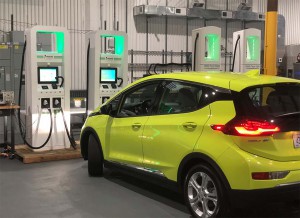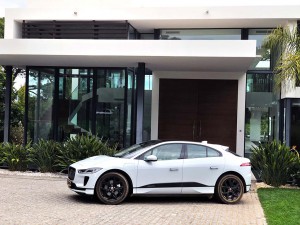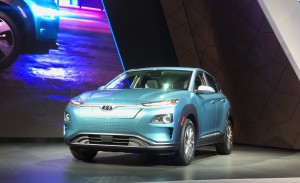Less than one in six Americans say they’d give serious consideration to buying an all-electric vehicle next time they’re in the market for a new car, truck or crossover, according to a new AAA study, a finding that could spell trouble for the automakers ready to launch dozens of new battery-electric vehicles, or BEVs, over the next several years.
The good news for the industry is that as many as 40 million Americans say they’d at least consider the merits of an all-electric model. But, according to the study released today, U.S. motorists remain confused about both the benefits and limitations of battery-cars.
“Today, more than 200,000 electric cars can be found on roads across the country as almost every manufacturer sells them,” said Greg Brannon, AAA’s director of Automotive Engineering. “But, like other new vehicle technologies, Americans don’t have the full story and that could be causing the gap between interest and action.”
(Tesla cars can now diagnose problems and even pre-order repair parts. Click Here for the story.)
Virtually every automaker now offers a mix of battery-based vehicles, including hybrids and plug-ins, but the big push over the next few years will see BEVs start to fill showrooms. These cover the full spectrum of products, from sports cars like the Porsche Taycan to SUVs like the Audi e-tron to the all-electric pickups coming from Ford, General Motors, Tesla and start-up Rivian.
These second-generation models are beginning to address key obstacles like range and price. A number of new offerings will be coming in at $40,000 or less, even before factoring in government incentives. And the typical battery-car going forward is expected to deliver a minimum of 200 miles between charges, while some are promising range closer to 400 miles.
But that message isn’t necessarily getting out to potential buyers, according to the AAA, a summary of the report cautioning that, “Many consumers are not sure what to expect from an electric vehicle.”
Meanwhile, not all the potential obstacles to acceptance are going away, at least not for at least a few years. While charger companies like EVgo, ChargePoint and Electrify America – as well as Tesla — are spending billions of dollars to create a nationwide charging infrastructure, the ability to plug in when the battery is low remains a serious concern to American motorists.
(Click Here to see how $2b from VW’s settlement of its diesel emissions scandal is helping Electrify America.)
Fully six in 10 of those surveyed raised that issue as a reason they are unlikely, or at least unsure about buying a BEV. Fifty-seven percent said they think electric vehicles aren’t suitable for long-distance travel.

A Chevrolet Bolt is plugged into an Electrify America charger. The company is one of several aiming to set up a national network of charging stations.
Concerns about the environment help inform which motorists are more likely to consider a battery-car, and that tends to focus on younger Americans. But energy costs are also a factor. A sizable number of buyers said they’d be more prone to plug in were gas prices to top $5 a gallon. That was far more the case among Millennials than Baby Boomers, according to AAA.
On the whole, only 42% of those surveyed said they expect most cars sold a decade from now will be electric. On the other hand, a majority said they expect autonomous vehicles to be the norm by 2029. That’s ironic, said Brannon, because most autonomous vehicles are expected to use electric propulsion.
Among those who said they’d be interested in buying an electric vehicle:
- Two out of three said they’d be willing to pay more than they would for a comparable gas-powered vehicle;
- Four in 10 would spend as much as $4,000 more; and
- One in four would spend more than $4,000 extra for an electric vehicle.
(EV start-up Workhorse Group plans to buy GM’s shuttered Lordstown plant. Click Here for that breaking story.)
At the same time the AAA released the new study, the travel and safety group released its latest Green Car Guide, spotlighting vehicles based on their environmental benefits, as well as their ride quality, safety and performance. This year’s winners of the Top Green Vehicle Award are:
CATEGORY VEHICLE
Overall 2019 Jaguar I-Pace EV400 HSE
Subcompact Car 2019 Chevy Bolt Premier
Compact Car 2018 Nissan Leaf SL
Midsize Car 2018 Tesla Model 3 RWD
Large Car 2018 Tesla Model S P100D
Pickup 2018 Ford F-150 4×4 Supercrew
SUV/Minivan 2019 Jaguar I-Pace EV400 HSE
Best Under $30K 2019 Toyota Camry SE
Best $30K – $50K 2018 Nissan Leaf SL
Best Over $50K 2019 Jaguar I-Pace EV400 HSE



When they have to actually part with their money it’ll be 1 in 100.
Electri cars are still priced too high and we need to stop heavilly subsidizing the rich folks who can afford them ($7500 from the Feds, up to $4,000 from staes, no taxation of EVs for road repairs)
Broadly true, Kent, but prices are coming down every year.
The $7,500 federal incentive is actually a tax credit which allows buyers to keep more of their hard-earned income. Some states are adding EV registration fees to cover lost road tax, meaning the emphasis is on lawmakers to keep their budgets in order.
Lastly, prices will tumble (and adoption increase) as a more vibrant used EV market emerges from current models coming off lease and long term EV drivers upgrading. It’s already possible to get into a reasonable “city car” EV for $10-15K and the selection will be much larger in just a year or two.
No sport model in the list above?
Apparently it doesn’t work for AAA.
Electric cars are still completely unrepresented in some key vehicle categories, most notably pick-up trucks and large SUV. Between the price of battery cells consistently coming down and old-school manufacturers seeing the writing on the wall for gassers and introducing electric versions across all categories, EV adoption will hit an inflection point over the next few years. From that point on, education will be accelerated and growth will be exponential.